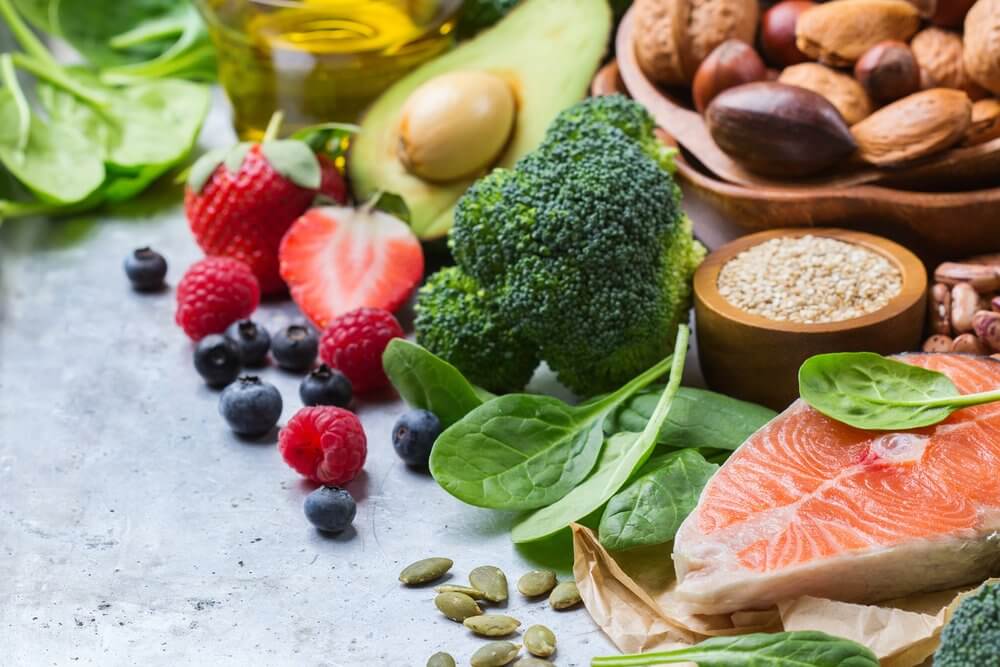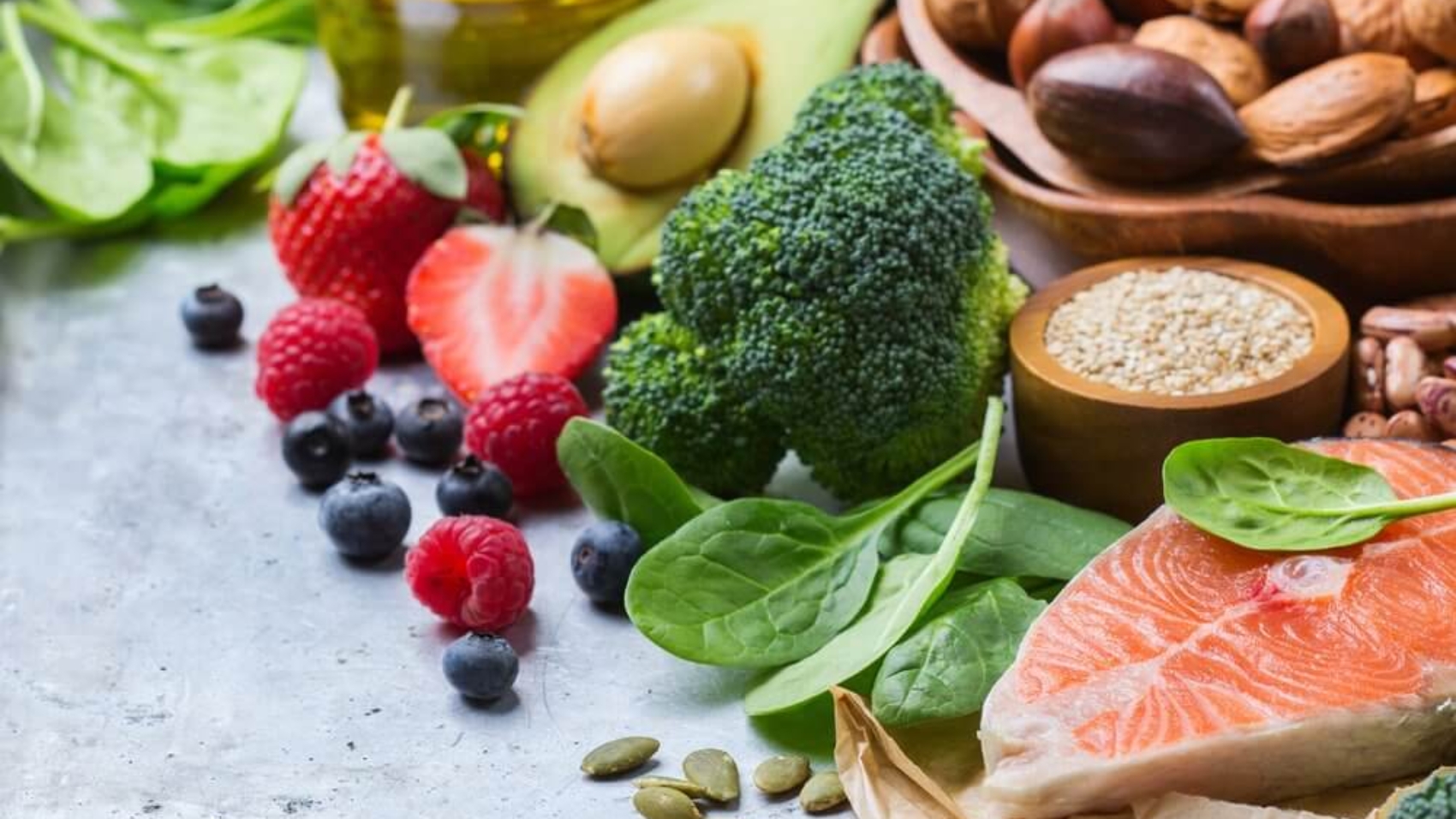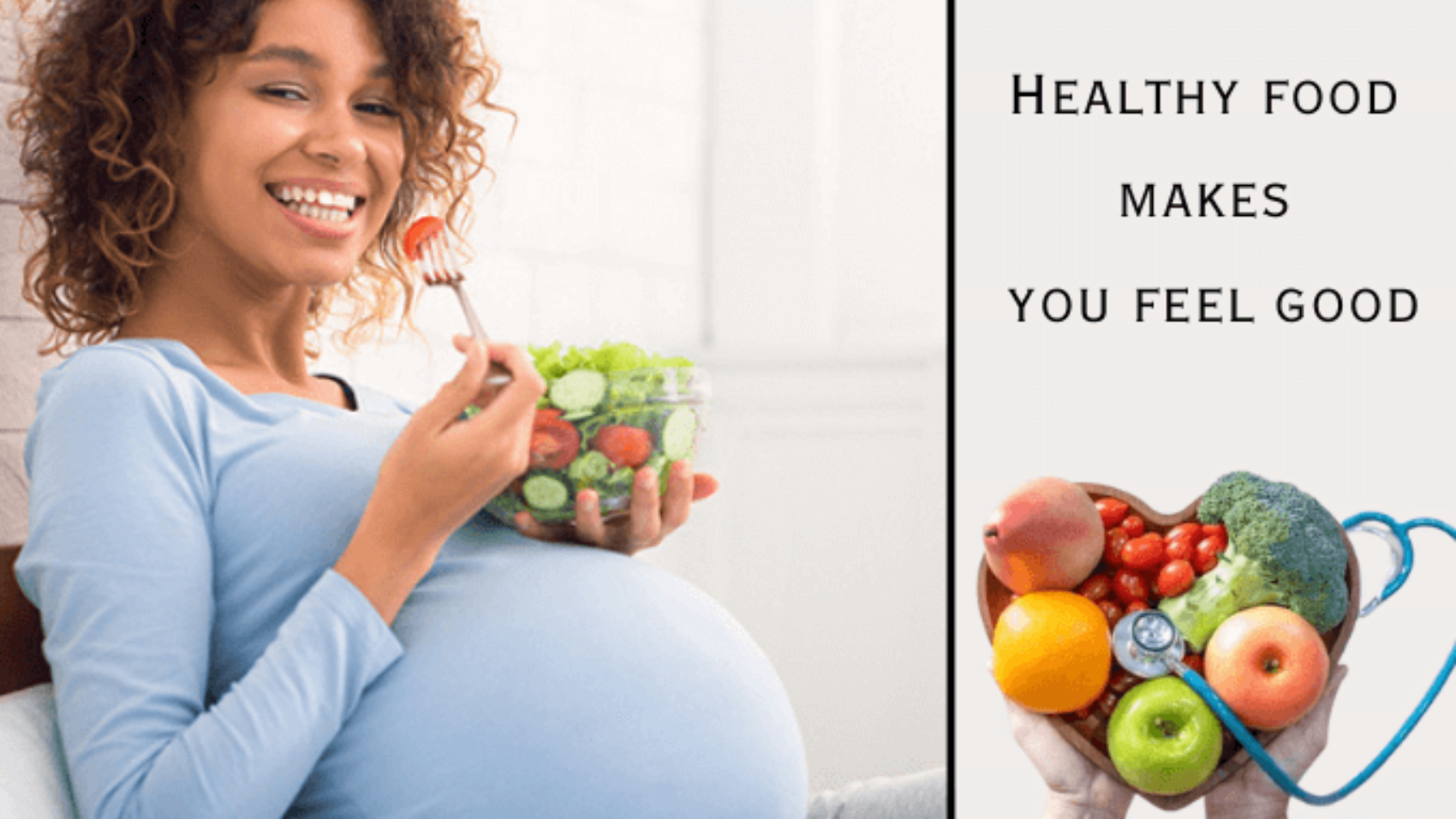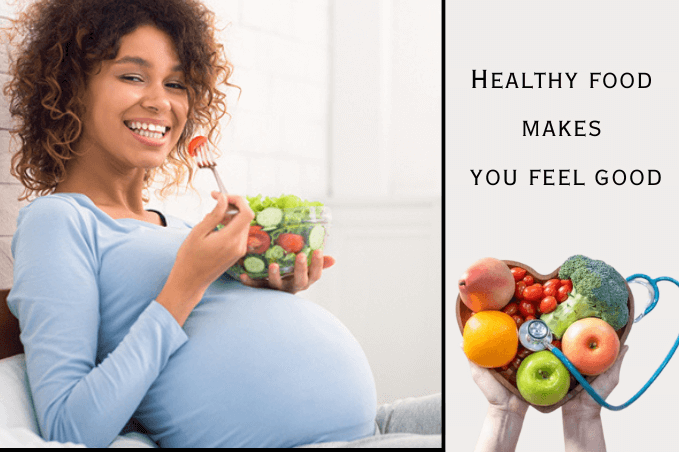
Introduction to Pregnancy Nutrition
Best wishes! As you set off on the amazing journey of pregnancy, everything seems to shine with a fresh brilliance. Your body starts a magical journey that nurtures a little miracle inside. The foundation of your trip becomes pregnancy nutrition, even in the middle of the chaos of emotions and bodily changes. It’s no longer just about feeding yourself; it’s also about giving your kid the foundation they need to grow and about taking care of yourself during this life-changing period.
Envision a harmonious blend of vital vitamins, minerals, and proteins that function as a symphony of nutrients. This nutritious orchestra plays a lovely concert, building the groundwork for your baby’s healthy organ systems, growing brain, and strong bones. Additionally, it guarantees that you will have the vitality and energy to enjoy every stage of your pregnancy. However, where should this nutritional concerto start? Mama-to-be, fear not! This all-inclusive manual guides you through the world of pregnancy nutrition like a personal maestro. To give you the power to make wise food decisions, we’ll dive into the essential nutrients that support both you and your unborn child, examine professional advice for putting together a tasty and well-balanced pregnancy diet, and address frequently asked questions. Thus, prepare to go out on a delightful and educational trip toward a healthy pregnancy by grabbing your metaphorical fork!
Why is Pregnancy Nutrition Important?
Pregnancy nutrition isn’t just about feeding yourself; it’s about nourishing two! The food you consume directly impacts your baby’s growth and development. A healthy diet provides the essential vitamins, minerals, and protein your baby needs for:
- Strong Teeth and Bones: The development of a robust skeletal system depends on calcium and phosphorus.
- Brain Development: Iron, choline, and DHA (docosahexaenoic acid) are essential nutrients.
- Healthy Organs: All of your baby’s organs and systems develop with the help of a range of vitamins and minerals.
- Healthy Weight Gain: Eating well keeps you and your child at a healthy weight.
Pregnancy nutrition is also beneficial to your health during this period of transition. You can better handle common pregnant discomforts like nausea, exhaustion, and constipation by eating a balanced diet. It also guarantees that you will be getting the nutrients you require to keep your personal health and energy levels up during pregnancy.
Important Elements for a Healthy Pregnancy
Pregnancy nutrition needs to be focused on certain nutrients to make sure you and your unborn child are healthy. Here are a few important actors:
- Folate: Folic acid is an essential B vitamin that helps prevent congenital conditions such as spina bifida. Ideally, begin taking 400 mcg per day before pregnancy.
- Iron: Provides your infant with oxygen. Fatigue can result from anemia caused by iron deficiency. Eat more iron-rich foods, such as dark greens, beans, and lean meats.
- Calcium: Helps your infant develop strong teeth and bones. Good sources include dairy products, leafy greens, and foods fortified with calcium.
- Vitamin D: Facilitates the uptake of calcium. Good sources include eggs, fatty fish, and fortified meals like milk.
- Choline: A necessary building block for the brain. Leafy greens, chicken, and eggs are healthy choices.
- DHA (Docosahexaenoic Acid): Another nutrient that helps the brain is docosahexaenoic acid (DHA), which is present in fatty fish like tuna, salmon, and sardines.
- Protein: Promotes the growth and development of your infant. Incorporate lean protein sources into your diet, such as fish, chicken, beans, and lentils.
- Prenatal Vitamins: Prenatal vitamins guarantee that you and your unborn child receive vital nutrients, particularly folic acid, and iron, even if a balanced diet is still important. To determine the best prenatal vitamin for you, speak with your doctor.
Creating a Pregnancy Diet Plate That Is Balanced
Now that we are aware of the necessary nutrients, let’s assemble a nutritious pregnant plate:
- Half your plate: Divide your plate in half and top it with vibrant fruits and veggies. They supply fiber, vitamins, and minerals.
- One-quarter of your plate: Lean protein foods like fish, chicken, beans, or lentils should make up 25% of your plate. Whole grains, such as brown rice, quinoa, or whole-wheat bread, make up one-quarter of your meal and provide you with long-lasting energy.
- Healthy fats: To boost baby’s development and encourage satiety, include healthy fats in moderation, such as avocado, nuts, seeds, and olive oil.
- Staying Hydrated Is Essential: For better overall health and to stay hydrated, try to drink 8 to 10 glasses of water each day.
Food Don’ts and Dos during Pregnancy
Do:
- Consume a lot of fruits and veggies.
- Select whole grains instead of processed ones.
- Incorporate sources of lean protein into your diet.
- Remember the good fats.
- Drink water to stay hydrated.
- Beef should be cooked through to prevent foodborne illness.
- Produce should always be carefully cleaned before eating.
- Examine food labels and pay attention to sodium and added sugars.
Don’t:
- Don’t eat. Aim to eat frequently throughout the day, including for snacks.
- Limit harmful fats, such as trans and saturated fats.
- Steer clear of undercooked or uncooked meat, eggs, and seafood.
- Dairy products that aren’t pasteurized may contain dangerous microorganisms. Select pasteurized products.
- Limit your consumption of caffeine. See your physician for advice on an appropriate daily intake.
- Steer clear of alcohol completely while pregnant.
- Avoid processed foods and sugar-filled beverages.
Common Nutritional Concerns During Pregnancy Addressed
Morning Sickness
- Instead of three big meals a day, eat smaller ones more often.
- Before getting out of bed, have a toast or dry cracker snack.
- Choose bland foods such as applesauce, rice, or bananas.
- Throughout the day, sip on clear beverages like cold broth or ginger tea.
Food Aversions and Cravings:
- Although cravings are normal, try not to overindulge in bad decisions.
- Combine your cravings with a nutritious choice. Say, you’re craving ice cream? Eat a little of it together with some fruit.
- Your body uses aversions as a means of communication. See your physician to rule out any underlying conditions if you routinely find healthy foods to be unpleasant.
Putting on Weight While Pregnant:
- Your pre-pregnancy weight will determine how much weight you can safely gain throughout pregnancy.
- To receive a customized weight gain recommendation, speak with your physician.
- Prioritize a healthy, balanced diet that will nourish both you and your child above severe calorie restriction.
Constipation:
- Fiber facilitates controlled digestion. Consume a diet rich in fruits, vegetables, and whole grains.
- Remain hydrated! Being well-hydrated can help avoid constipation.
- Regular bowel movements can also be encouraged by little exercise. For advice on safe activity options during pregnancy, speak with your doctor.
Heartburn:
- Consume smaller meals more often.
- Steer clear of items high in spice or fat.
- Avoid falling asleep right away after eating. When you sleep, raise your head a little bit.
- If dietary modifications are insufficient to relieve heartburn, speak with your doctor about safe medications.
Savor the Journey with Appetizing and Healthful Pregnancy Meals
Pregnancy nutrition doesn’t have to be dull or bland! Discover a world of mouthwatering and nourishing meals that will benefit both you and your infant. To help you started, consider these recipe suggestions:
- Breakfast: Breakfast consists of scrambled eggs with spinach, whole-wheat bread, Greek yogurt with fruit and granola, and whole-wheat pancakes with berries and nuts.
- Lunch: Lunch options include a tuna salad sandwich on whole-wheat bread topped with avocado slices, lentil soup served with whole-wheat bread, and grilled chicken salad with quinoa.
- Dinner: Dinner consists of lentil spaghetti with marinara sauce, turkey chili with whole-wheat cornbread, salmon with roasted veggies and brown rice, and a side salad.
- Snacks: Trail mix (watch out for added sugars), baby carrots with hummus, fresh fruits with nut butter, and whole-wheat crackers with cheese.
Recall that portion control is essential. Savor these delectable choices, but watch how much you eat.
By embracing a balanced and personalized approach to pregnancy nutrition, you can empower yourself and your baby for a healthy and joyful pregnancy journey.
Conclusion
Celebrate the amazing symphony of nourishment you have choreographed as you approach the last crescendo of your pregnancy journey. Your commitment to good pregnancy nutrition has been essential to your lovely child’s growth and development, setting the stage for a bright and healthy future. Never forget that the road is far from over. With this increased understanding of good eating practices, you will be able to support your expanding family and instill in them a lifetime appreciation of well-balanced, delectable meals.
But this trip has probably offered other delights besides nutrition. Maybe you fell in love with a new fruit or vegetable, or maybe you rediscovered the joy of simply preparing healthful meals. Carry your newly discovered interests with you, and treasure the recollections of feeding your body and soul during your pregnancy.
The foundation you laid with pregnancy nutrition will continue to be relevant as you bring your child into the world. Making healthy eating a priority now will help your child develop a lifelong appreciation for a balanced diet by providing a good example. Thus, rejoice in the completion of this incredible voyage, honor the harmonious composition of sustenance you’ve produced, and anticipate a future full of wholesome routines and delectable experiences spent with your priceless family.



